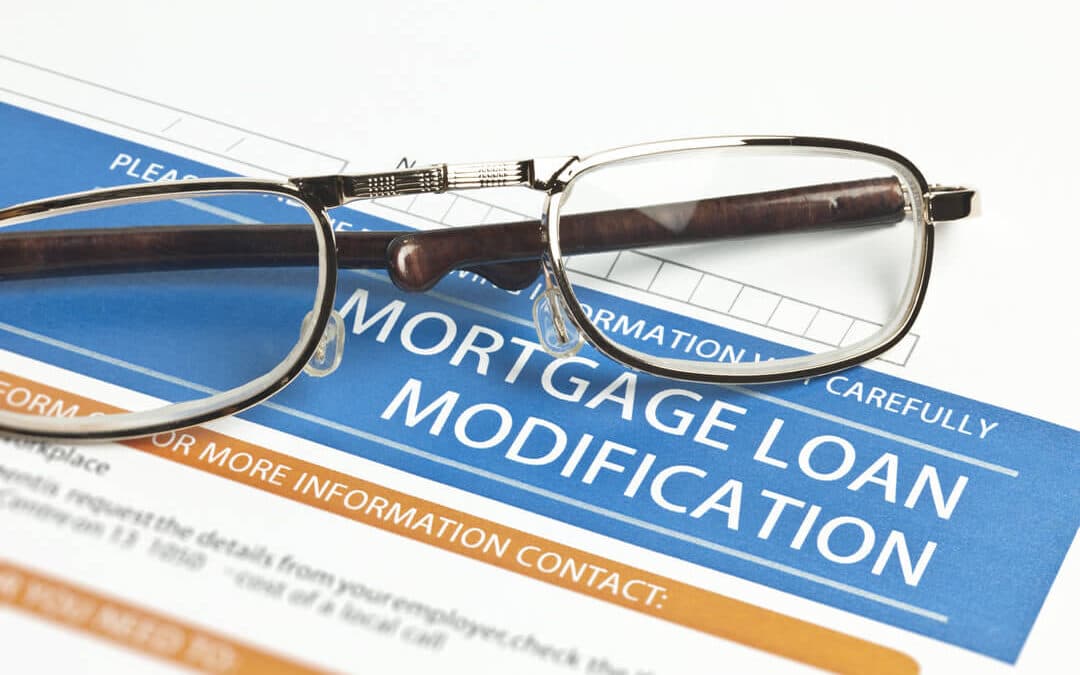When you are struggling with debt, it is easy to get behind on your mortgage. You have tried to make the payments on time, but other debts have taken precedence, and you have fallen behind on your mortgage payments. You have realized you may not catch up, and now worry about foreclosure occurring. You are trying to figure out a way to save your home.
If this describes your financial situation, you may want to take a look at a mortgage loan modification. To help you understand this option, we will look at what a mortgage loan modification is and what a mortgage loan modification can do for you.
What Is a Mortgage Loan Modification?
A mortgage loan modification is a new deal that you make with your lender to change your terms of repayment. These changes can be in the form of an interest rate reduction or an extension of the term of the loan. The term of the loan may be extended to lower the monthly payment or they may reduce it on a portion of the debt. The modification may require you to make reduced payments for a short period, then gradually increase the payments overtime to bring them back to the original loan amount.
If you wish to seek a mortgage loan modification, you will need to contact your lender directly and request to speak with a loan modification specialist about eligibility. The eligibility requirements vary from lender to lender, but the process begins by providing required documentation, such as
- proof of income
- proof of expenses
- documentation of all debts
- bank statements
- tax returns for a specified number of years
- letter of hardship
Once you have filled out all necessary paperwork and provided the required documents, the lender will review your request and decide on whether to grant the modification.
Chapter 13 Bankruptcy and Mortgage Modification
Chapter 13 bankruptcy can also help protect your home from foreclosure. It helps first because the foreclosure gets delayed during the approval process of your bankruptcy case. This is possible because when you file bankruptcy, a court-ordered automatic stay goes into place, which prohibits creditors from collecting on debts while your bankruptcy case is processing.
If you get approved for a Chapter 13 Bankruptcy, your debt is reorganized into a bankruptcy court structured repayment plan in which you pay off your unsecured debt (i.e. credit cards and medical bills) within 3–5 years, often at a fraction of their total cost. As for your mortgage, as secured debt, you would need to continue making the regular payments to the lender. But bankruptcy would allow the arrearages you owe on the mortgage to be added to your repayment plan. This would allow you to catch up on the late payments over time and therefore avoid foreclosure.
Even though you may start paying mortgage arrearages through a Chapter 13 repayment plan, you’ll still be able to work with your lender to modify your mortgage. You would contact your lender as discussed above and if they approve a mortgage modification, you must submit the agreement to the bankruptcy court for approval. The bankruptcy trustee or judge would determine if the agreement is fair, based on the value of the collateral (your home) and your ability to pay under the new terms. If the bankruptcy court approves the agreement, they create a new Chapter 13 repayment plan which removes the mortgage arrearages.
Getting Help to Stop Foreclosure
Knowing which financial choices to make to help stop a foreclosure on your home can be difficult. It is a serious situation and requires an understanding of financial and legal aspects.
Our attorneys have over 25 years of experience helping clients prevent foreclosure. Contact us for a free evaluation of your financial situation to see if mortgage modification, chapter 13 bankruptcy, or a combination of both can help you prevent foreclosure and remain in your home. Let our family help your family.

